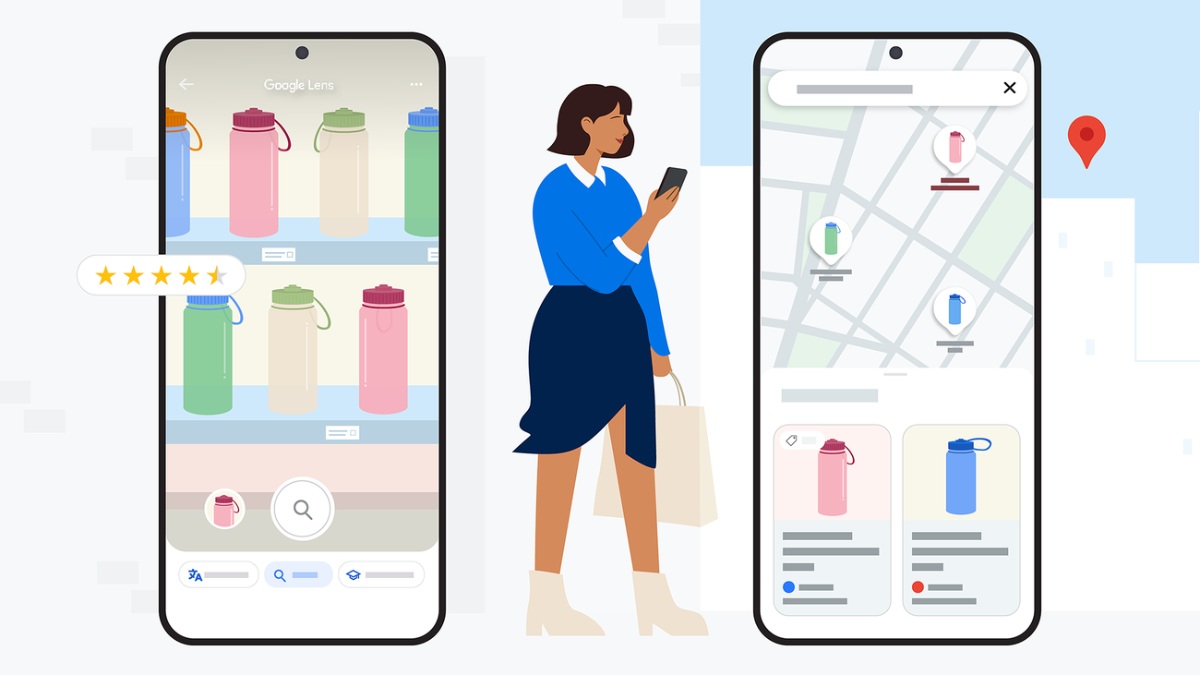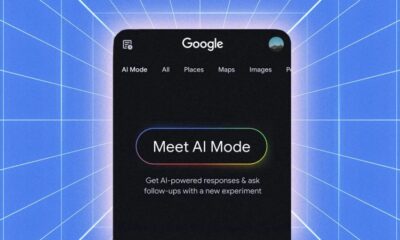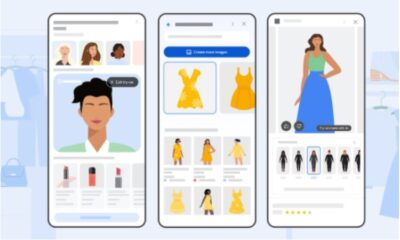Tech
Google Launches New Tools to Improve Online and In-store Shopping Experiences with AI-powered Features

Google announced the launch of artificial intelligence-powered features in Google Lens, Google Maps, and Google Pay, which will enhance both online and in-person shopping experiences.
Google is utilizing AI technology to improve the in-store shopping experience after releasing a revamped Google Shopping platform in October. Customers can access product details, reviews, and similar prices by taking a Google Lens snapshot.
Beginning on Tuesday, November 19, consumers in the US can use Lens to discover information about toys, electronics, and beauty products at participating retailers who provide Google access to their local inventory. In the upcoming weeks, Google Maps will also enable users to search for particular products, such as apparel or household goods, and find nearby stores carrying the necessary stock.
In a company blog post on Tuesday, November 19, Lilian Rincon, vice president of consumer shopping products for Google Shopping, stated that “Lens is used for nearly 20 billion visual searches every month, and 20% of those searches are shopping-focused.” “…Google Lens can quickly show you product insights tailored to the store you’re in. Just snap a photo to find product information, similar products in stock, whether a store’s price is competitive, and shopper reviews.”
With the help of Gemini models, real-time inventory data from several retailers, and the Shopping Graph’s more than 45 billion product listings, the update is propelled by developments in AI image recognition technology.
Rincon stated in the post, “Just tap the Lens icon in your search bar to try these in-store updates.”
More BNPL Options
In addition to these in-store improvements, Google Pay is extending its buy now, pay later (BNPL) services to Afterpay and Klarna in response to the growing demand for flexible payment options.
“It’s our priority to keep your information safe — however you choose to pay,” Rincon wrote in the post. “One way we do this is through virtual cards, which conceal your American Express, Capital One, or Citi card number during online transactions, protecting you from potential fraud. Starting this month, we’re expanding this feature to Discover cardholders in the U.S. who can set up and use a virtual card from their Chrome or Android device. We’re always working to protect consumers and businesses from fraud, which is forecasted to grow substantially in the coming years.”
Personalized Shopping
Google revamped its Google Shopping platform last month, adding tools for price comparison, product insights, and tracking along with a personalized homepage that makes product and video recommendations based on user preferences. Users can find discounts that fit their shopping patterns with the help of a dedicated deals page.
Google representatives highlighted how AI allows for dynamic, visually rich searches as well as personalized recommendations, so customizing the shopping experience. To assist users in making better, faster decisions, the platform also offers AI-generated briefs, such as product recommendations tailored to a user’s location or climate. Despite being labeled as “experimental,” Google welcomes feedback from customers to improve the service.
-

 Business4 weeks ago
Business4 weeks agoHow to fill MSME Form 1? Step-by-Step Guide
-

 Gadget4 weeks ago
Gadget4 weeks agoAfter Grand Success on BLDC Ceiling Fan, Eff4 Is Launching Smart Bulb
-

 Festivals & Events4 weeks ago
Festivals & Events4 weeks agoGoogle Celebrates Cherry Blossom Season with Animated Doodle
-

 Business2 weeks ago
Business2 weeks agoPrakash and Kamal Hinduja: Driving Social and Environmental Change
-
Education3 weeks ago
Fred DuVal: University Leadership as a Critical Resource for Climate Change Research and Life-Saving Solutions
-

 Sports4 weeks ago
Sports4 weeks ago2025 NASCAR Craftsman Truck Series Baptist Health 200 at Homestead-Miami Speedway: Race Preview, Prediction, Schedule, Entry List, Drivers to Watch and How to Watch
-

 Health2 weeks ago
Health2 weeks agoThe Hinduja Brothers Commitment to Global Health: Empowering Communities Across Borders
-

 Cryptocurrency2 weeks ago
Cryptocurrency2 weeks agoDesigned For The Masses: How Akasha (AK1111) Is Unlocking Crypto For The Next Billion Users























